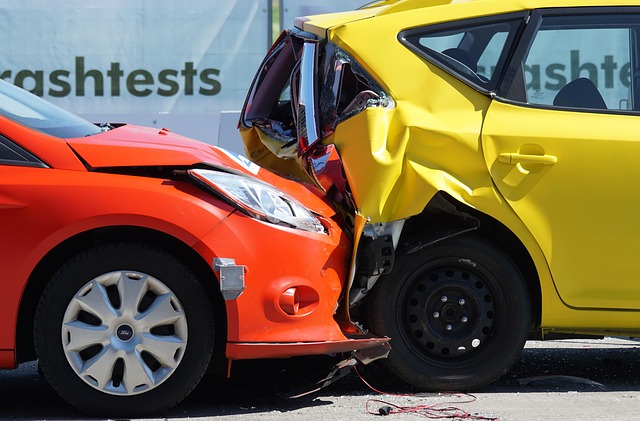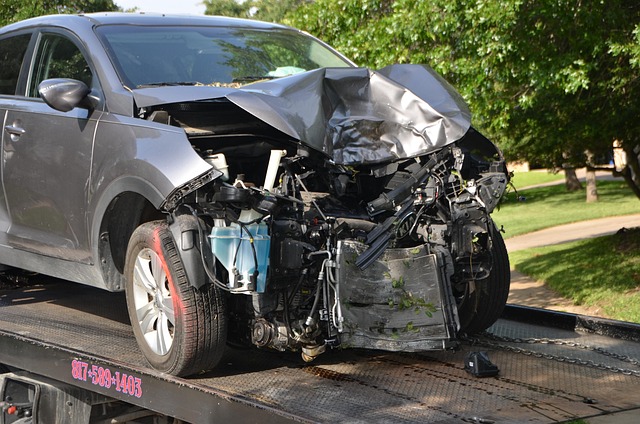Collision vs. Comprehensive Auto Insurance: Understanding the Differences. Collision insurance protects against vehicle damage from accidents, offering peace of mind for drivers at fault or not. Comprehensive insurance, a broader coverage, shields vehicles from various risks including theft, vandalism, natural disasters, and less common accident types. While collision insurance is cost-effective for specific incident protection, comprehensive insurance provides a robust safety net for unforeseen events, making it ideal in regions with high crime rates or severe weather conditions. Choosing between them depends on individual needs, vehicle condition, driving habits, and budget.
Choosing between collision and comprehensive auto insurance is a crucial decision that impacts your financial protection behind the wheel. This guide breaks down the nuances of these two essential coverage types, helping you navigate the complexities. We’ll explore collision insurance’s focus on accidental damages and comprehensive insurance’s broader protection against all risks. By understanding when each is necessary and comparing their benefits through real-world scenarios, you can make an informed choice tailored to your needs.
Understanding Collision Insurance: Coverage for Accidental Damages

Collision insurance, a key component in auto insurance policies, provides financial protection against damages to your vehicle resulting from accidents. This coverage is designed to help repair or replace your car when it suffers accidental damage, regardless of who is at fault. Whether you’re involved in a minor fender bender or a more severe collision, collision insurance can cover the costs of repairs or even total vehicle replacement if necessary.
When considering Collision vs. Comprehensive Auto Insurance, understanding the distinction between these two types of coverage is crucial. While comprehensive insurance offers broader protection against various risks like theft, vandalism, and natural disasters, collision insurance specifically targets accidental damages. This specialization makes collision insurance a compelling choice for drivers who primarily want to safeguard their vehicles from typical accident-related incidents.
Comprehensive Insurance: Protecting Against All Risks

Comprehensive insurance is a type of auto coverage that goes beyond collision protection, offering peace of mind by safeguarding against a wide range of risks. Unlike collision insurance which primarily covers damage resulting from accidents and collisions with other vehicles or objects, comprehensive insurance includes additional protections such as theft, vandalism, natural disasters, and even accidental damage. This makes it a popular choice for drivers who want to be prepared for unexpected events.
When deciding between collision vs. comprehensive auto insurance, understanding these differences is key. While collision insurance is essential for mitigating the financial impact of accidents, comprehensive insurance provides an extra layer of security by addressing other potential hazards. In many cases, choosing comprehensive coverage can be a wise decision, especially in regions prone to severe weather or high crime rates, ensuring drivers are protected against a broader spectrum of risks.
When is Collision Insurance Necessary?

Collision insurance is a crucial component of auto coverage that kicks in during accidents, regardless of fault. It’s particularly necessary when your vehicle sustains significant damage from a collision with another car, a fixed object, or even due to rolling over. If you’re at fault or an unrelated party is responsible for the incident, collision insurance helps cover the costs of repairs or, if the damages are beyond repair, replacement.
When comparing Collision vs. Comprehensive Auto Insurance, understanding when each type is essential is key. While comprehensive insurance covers a wide range of incidents, from theft to natural disasters, collision insurance focuses on accidents. If you frequently drive in areas prone to fender benders or high-speed collisions, collision coverage can provide peace of mind by ensuring your vehicle’s repair or replacement costs are met without breaking the bank.
Benefits of Comprehensive Coverage

When considering your auto insurance options, understanding the benefits of comprehensive coverage can be a game-changer in protecting your vehicle and financial well-being. Unlike collision insurance, which primarily covers damage from accidents involving other vehicles or objects, comprehensive coverage steps in to protect you from a wide range of unforeseen events. This includes damage caused by natural disasters like floods, earthquakes, or severe storms, as well as theft, vandalism, and even accidental damage to your car while it’s parked.
Comprehensive insurance is particularly appealing due to its ability to provide peace of mind. It ensures that regardless of the circumstances, you’re financially secured. This is especially valuable for those who drive through areas prone to extreme weather or live in regions with higher theft rates. By opting for comprehensive coverage, drivers can avoid the hassle and stress of dealing with collision repairs and potentially high out-of-pocket expenses, making it a smart choice when navigating Collision vs. Comprehensive Auto Insurance options.
Scenario-Based Comparison: Collision vs. Comprehensive

When faced with choosing between collision and comprehensive auto insurance, understanding the scenarios each policy covers is crucial. Collision insurance kicks in when your vehicle suffers physical damage due to a crash with another car or object. It doesn’t matter if the incident was your fault; this coverage will help repair or replace your vehicle. On the other hand, comprehensive insurance provides protection against a broader range of unforeseen events. This includes things like theft, vandalism, natural disasters, and even animal-related damage.
While collision insurance is more focused on addressing tangible damages to your car, comprehensive insurance offers peace of mind by covering situations that might not directly impact your vehicle’s physical condition but still require financial assistance. For instance, if your car is stolen or damaged beyond repair due to an act of vandalism, comprehensive insurance would step in to reimburse you for the loss, up to the policy limits. This comparison highlights the difference in scope between collision and comprehensive coverage, with the latter offering a more extensive safety net for various risks that could affect vehicle ownership.
Cost Analysis: Factors Influencing Premium Prices

When comparing collision vs. comprehensive auto insurance, understanding the cost implications is crucial. The premium prices for these policies can vary widely based on several factors. One significant influencer is the type and extent of coverage selected. Comprehensive insurance, which covers a wide range of events beyond collisions like theft, vandalism, or natural disasters, tends to have higher premiums than collision insurance. This is because it offers more protection against unforeseen incidents.
Other considerations include your vehicle’s make and model—older or high-value cars may command higher premiums due to repair costs. Your driving history plays a role too; a clean record usually translates to lower rates. Additionally, the deductible amount you choose can impact prices; opting for a higher deductible often leads to lower monthly payments but requires greater out-of-pocket expenses during claims. Location and your insurance provider’s rates are also essential variables in determining the final cost of collision vs. comprehensive auto insurance.
Making the Right Choice: Tips for Deciding Between Collision and Comprehensive

When deciding between collision and comprehensive auto insurance, understanding their distinct covers is key. Collision coverage kicks in during accidents involving your vehicle, paying for damages to your car regardless of who’s at fault. On the other hand, comprehensive insurance broadens protection, covering not just collisions but also theft, vandalism, and natural disasters (like floods or hail).
Consider your driving habits, vehicle condition, and budget. If you’re prone to fender benders or drive in areas with high crime rates, collision might be preferable. However, if you mostly use your car for leisurely drives and live in a secure neighborhood, comprehensive could offer more bang for your buck by protecting against less common but still significant risks.
